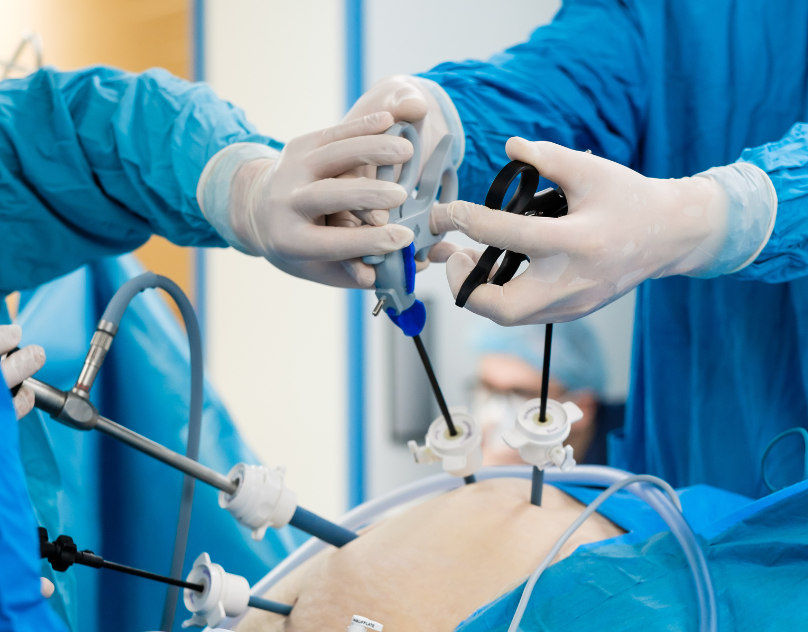Ergonomics in Minimal Access Surgery: Top hands on laparoscopic training institute in India
Get Schedule Course

A Comprehensive Guide Top hands on laparoscopic training institute in India
In the realm of surgical advancement, laparoscopic surgery stands out for its minimally invasive techniques. However, mastering these skills requires comprehensive hands-on training. This article navigates through the Top hands on laparoscopic training institute, shedding light on their courses, fellowships, and the essence of practical learning. fellowship in laparoscopic surgery
Exploring Leading Top hands on laparoscopic training institute in India
- Best hands on laparoscopic training Centre Practices at Top Institutes: Highlighting renowned centers offering laparoscopic surgery training courses in India focusing on their state-of-the-art facilities, faculty expertise, and curriculum.
- Specialized Courses: Detailing the diverse laparoscopic surgery training courses in India courses available, addressing various skill levels and specialties.
- Fellowship Programs: Analyzing fellowship opportunities for aspiring laparoscopic surgeons, outlining the scope and benefits of these programs.
Customized Training for Gynecologists:
- Laparoscopy Training for Gynecologists: Delving into specialized training tailored for gynecologists, emphasizing specific techniques, procedures, and advancements in this field.
Elevating Surgical Proficiency:
- Practical Learning: Emphasizing the significance of hands-on training in laparoscopic surgery and its pivotal role in enhancing surgical proficiency.
- Cutting-edge Techniques: Exploring innovative methodologies incorporated into training modules to keep pace with technological advancements in the field.
Choosing the Right Training Institute:
- Factors to Consider: Offering guidance on selecting the best laparoscopic training center in India, considering aspects like accreditation, curriculum, mentorship, and infrastructure.
- Testimonials and Success Stories: Showcasing success stories and testimonials from trainees to provide insights into the quality and impact of training programs.
Introduction:
Fellowship Minimal Access Surgery (FMAS) has transformed the landscape of surgical procedures, offering a less invasive alternative to traditional open surgeries. Despite the evident advantages, the success of MAS is intricately linked with the ergonomics of the surgical environment. Ergonomics, the study of designing equipment and devices that fit the human body and its cognitive abilities, plays a pivotal role in optimizing the workspace for surgeons engaging in FMAS. This article aims to explore the multifaceted relationship between ergonomics and FMAS, shedding light on its importance for surgical precision, efficiency, and the well-being of surgeons.
Section 1: Understanding Ergonomics in Surgery
1.1 Definition and Principles of Ergonomics
- Defining ergonomics and its application in surgery.
- The principles of ergonomics in the context of surgical procedures.
1.2 Importance of Ergonomics in Surgery
- How ergonomics contributes to the overall success of surgical procedures.
- Impact on surgeon performance, patient outcomes, and healthcare costs.
Section 2: Challenges in Minimal Access Surgery
2.1 Spatial Constraints
- Discussing the limited space in which surgeons operate during FMAS.
- Addressing the challenges posed by the confined working environment.
2.2 Instrument Design and Maneuverability
- Analyzing the design of surgical instruments and their impact on ergonomics.
- Evaluating the importance of instrument maneuverability in FMAS.
2.3 Visualization Challenges
- Discussing the significance of clear visualization in FMAS.
- The impact of poor visibility on surgical outcomes.
Section 3: Ergonomic Solutions in Minimal Access Surgery
3.1 Customized Operating Room Design
- Exploring the design principles for operating rooms tailored for FMAS.
- Integrating technology for optimal ergonomics.
3.2 Advancements in Surgical Instrumentation
- Analyzing the evolution of surgical instruments in FMAS.
- Ergonomic considerations in instrument design.
3.3 Human-Machine Interface in Surgery
- Discussing the role of technology in enhancing the surgeon-machine interface.
- The integration of robotics and automation for improved ergonomics.
Section 4: Impact of Ergonomics on Surgeon Well-being
4.1 Reducing Physical Strain and Fatigue
- Examining the physical demands on surgeons during FMAS.
- Strategies to mitigate fatigue and prevent musculoskeletal injuries.
4.2 Enhancing Concentration and Cognitive Performance
- The connection between ergonomic design and cognitive workload.
- Implementing measures to optimize concentration and decision-making.
Section 5: Patient Outcomes and Healthcare Economics
5.1 Effect on Surgical Outcomes
- Correlating ergonomic practices with improved surgical precision.
- The impact on patient recovery times and postoperative complications.
5.2 Cost-Benefit Analysis
- Evaluating the economic implications of ergonomic investments.
- Balancing upfront costs with long-term benefits in healthcare.
The integration of ergonomics into the realm of Minimal Access Surgery is indispensable for achieving optimal outcomes. Surgeons, healthcare providers, and medical device manufacturers must collectively acknowledge the importance of ergonomic principles in designing and implementing FMAS procedures. By addressing the challenges, implementing innovative solutions, and prioritizing surgeon well-being, the field of FMAS can continue to advance, providing patients with safer, more efficient, and less invasive surgical options.
Related Courses
Minimal Access Surgery Training – Gynaecologists
